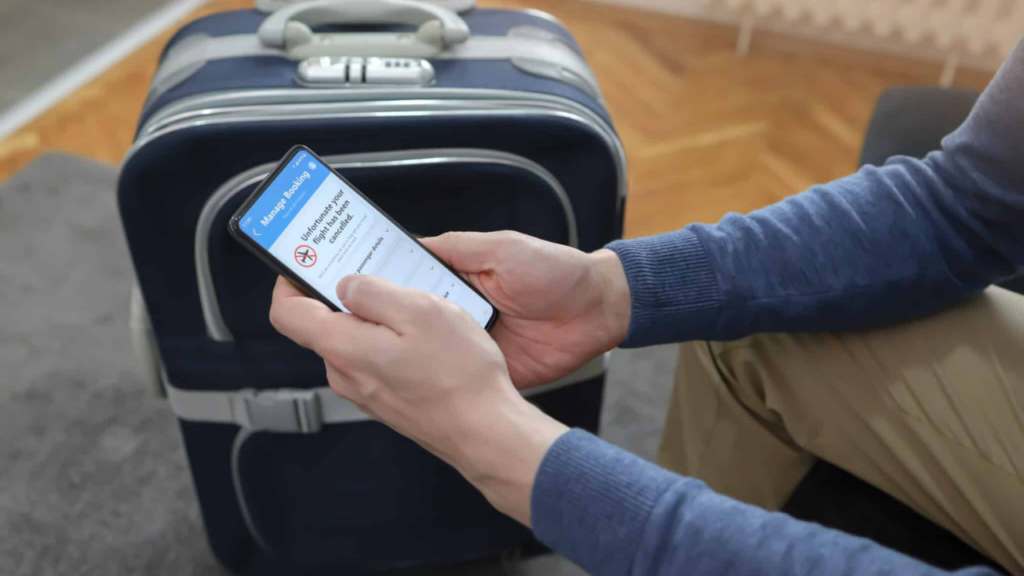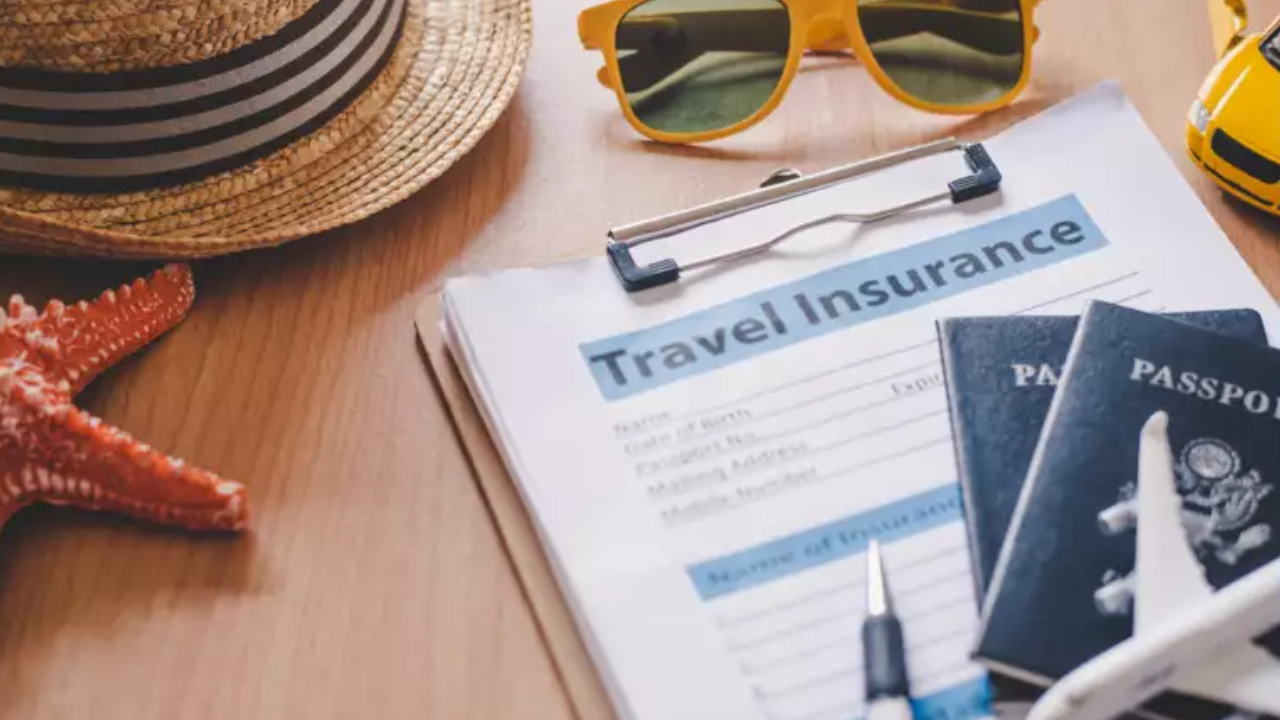Traveling can be quite costly. Insurance protects your non-refundable holiday investment in case something bad happens. But is it worth it to buy travel insurance?
Which answer you get will rely on whether your trip is refundable, where you’re going, whether you have health insurance where you’re going, and how much from your credit card. Before you decide if flight insurance is right for you, here are some important things you should know.
In What Ways Does Travel Insurance Help?
If you have travel insurance, also called trip insurance, it will cover many things that could go wrong while you’re away, like lost luggage, canceled flights, and medical issues.
Common types of travel insurance
- Accidental death insurance.
- Baggage delay and lost luggage insurance.
- Cancel for Any Reason insurance.
- Emergency evacuation insurance.
- Medical insurance.
- Rental car insurance.
- Trip cancellation insurance.
- Trip interruption insurance.
This amount of money is based on the type of policy you got, where and when you bought it, and the policy itself. Most companies that sell travel insurance have many different plans that you can choose from. These plans range in price and amount of coverage. You can get insurance for a single trip, several trips, or the whole year.
One insurance can cover just one person, or it can cover your whole family. A lot of different companies sell policies. Two of the most well-known are Allianz and Travel Guard. This graph shows the different amounts of coverage and benefits that come with some Allianz policies.
| OneTrip Basic | OneTrip Prime | AllTrips Basic | AllTrips Premier | |
|---|---|---|---|---|
| Trip cancellation | Up to $10,000. | Up to $100,000. | N/A. | $2,000 to $15,000. |
| Trip interruption | Up to $10,000. | Up to $150,000. | N/A. | $2,000 to $15,000. |
| Emergency medical | $10,000. | $25,000. | $20,000. | $50,000. |
| Emergency medical transport | $50,000. | $500,000. | $100,000. | $500,000. |
| Baggage loss/damage | $500. | $1,000. | $1,000. | $2,000. |
| Baggage delay | $200. | $300. | $200. | $2,000. |
| Travel delay | $300 / daily limit $150. | $800 / daily limit $200. | $600 / daily limit $200. | $1,500 / daily limit $300. |
| Rental car damage/ theft | N/A. | N/A. | $45,000. | $45,000. |
| Travel accident | N/A. | N/A. | $25,000. | $50,000. |
| Pre-existing conditions | Covered if certain criteria are met. | Covered if certain criteria are met. | N/A. | Covered if certain criteria are met. |
NerdWallet recently looked at a number of different travel insurance plans to help you pick the one that fits your needs and budget the best. Here are the companies we found to be the best right now for travel insurance.
In What Ways Does Travel Insurance NOT Help?

What your travel insurance doesn’t cover depends on your coverage and the company you buy it from. A lot of the time, pre-existing medical conditions are not covered, which means that your benefits don’t cover claims linked to those conditions. Some policies will cover medical conditions that you already had if you meet certain requirements, such as if you bought the insurance within 14 days of paying for your trip and were healthy enough to travel when you booked your trip.
Are you going to climb mountains or do other risky things on your trip? A lot of insurance plans won’t cover you if something goes wrong unless you buy one that covers outdoor sports. For example, World Nomads travel insurance has a plan called Explorer that covers cave diving, cliff jumping, heli-skiing, and a lot of other dangerous sports. A trip insurance policy might also not cover things like war, terrorism, drinking, which could lead to your injuries being called “self-inflicted,” or using drugs, which could be against the law.
You’ll need to find a policy that lets you buy a stop For Any Reason (CFAR) add-on if you want to be able to stop your trip for any reason. This extra benefit does exactly what it sounds like it does: it lets you stop your trip for any reason. Usually, you’ll get back about 75% of the nonrefundable trip costs you already paid for, but the exact date and amounts depend on the policy.
When Is Travel Insurance Not Necessary?
Travel insurance mostly covers two things about your trip: your nonrefundable tickets and your medical bills while you’re away. If you can cancel all of your plans without being charged, you don’t need trip cancellation or trip interruption insurance. But you might not need insurance even if your trip isn’t fully refunded.
For instance, a cheap flight and room stay might not be worth the cost of travel insurance, but you might still want to get it in case of an emergency. If you have health insurance in the U.S. and are going within the U.S., you probably don’t need medical coverage. In that case, you probably already have enough insurance to cover illness or accident.
When Is Trip Insurance Worth It?
You might want to get travel insurance to protect your health, your bags, or the money you spend on a trip you can’t return.
When Is the Best Time to Get Trip Cancellation And/or Trip Delay Insurance?
If you would lose the money you paid for your flights, hotel, rental car, activities, or other things you planned to do if you had to cancel or leave early, you should probably get travel insurance that covers both. This protection will pay for your plans if your trip is canceled or cut short for a reason that is covered.
For instance, if you want to go somewhere that might have weather problems, like the Caribbean during hurricane season, travel insurance might cover your non-cancelable reservations. Some policies also cover emergency evacuations so that people can get away from dangerous conditions. It’s not likely that the trip insurance will protect you if you try to buy it after the storm has happened.

When Should You Get Cover for Lost or Delayed Luggage?
What if your packed luggage gets lost or is late while you’re away for a week? Baggage delay insurance will pay for any necessities you may need to buy because you don’t have your things while you wait for your luggage. These could be toiletries, medicine, socks, clothes, etc.
But what if the worst thing that could happen does happen and your bag gets lost or stolen? If you lose your bag, your lost travel insurance will pay you up to a certain amount of money. You don’t need these two types of covering if you’re only taking a carry-on.
When Should You Get Medical Insurance for Your Trip?
Health insurance plans based in the U.S. usually cover you anywhere in the U.S. But some plans, like Medicare, might not cover you if you get sick or hurt while traveling abroad.
Many doctors may not accept your health insurance when you get there, even if it covers you while you’re away. If you don’t have travel insurance, you might have to pay these bills out of your pocket and then ask your healthcare provider to repay you.
When is the best time to buy CFAR?
Not many travel insurance plans will reimburse you for costs if you have to cancel for a “non-covered” reason like if your plans change or you decide you no longer want to go. That’s the time when you might want to buy CFAR.
You can get up to 50–75% of your prepaid trip costs back with the CFAR add-on if you cancel at least two to three days before your trip. This is only possible if you need to cancel for a reason that isn’t covered by trip cancellation. Also, you have to buy the add-on within a certain amount of time after making the first trip deposit (usually 14 to 21 days).
So, what is an example of a cancellation that CFAR will pay for? You and your partner planned a trip together, but a week before the trip, you broke up. You don’t want to go alone. For example, you might plan a trip for a long time, but when the time comes, you change your mind. When these things happen, CFAR will help you.
When Is It Worth It to Buy Travel Insurance Even if You Already Have One from Your Credit Card?
If you already have some travel insurance through your credit card (for example, trip cancellation, trip interruption, and lost luggage), but you think the limits are too low, you might want to buy a full travel insurance plan or a separate travel medical insurance policy to protect you in case of a medical emergency on your trip.
Read More: JetBlue vs. American Airlines: Which is Better to Travel?
12 Best Places to Travel in April!
Where to Buy Travel Insurance
If you use a travel planner to book your trip, they may be able to help you get coverage. That includes sites like Expedia that let you book trips online. People who are going on cruises usually have the option to buy insurance when they book their trip.

When you book a flight through an airline’s website, they may also offer you certain types of coverage. You can get travel insurance even if you have an award reservation. Still another choice is to buy travel insurance straight from a company website, such as Allianz, AXA, or Travel Guard.
How Much Does Insurance for Trips Cost?
How much travel insurance costs depends on what you’re doing on your trip. To get a price, the best thing to do is to ask for a quote on the websites of trip insurance companies. To compare more than one insurance company at once, you can use a consolidator like SquareMouth or InsureMyTrip.com.
should you use the trip insurance on your credit card instead?
A lot of travel credit cards cover you in some way if your flight is late or canceled, your rental car is broken, or your luggage is lost or delayed. Here are some credit cards that offer travel benefits that could be used instead of travel insurance. But there is a lot of small print on the perks, even with these cards.
- Chase Sapphire Preferred® Card.
- Chase Sapphire Reserve®
- The Platinum Card® from American Express
- Ink Business Preferred® Credit Card

